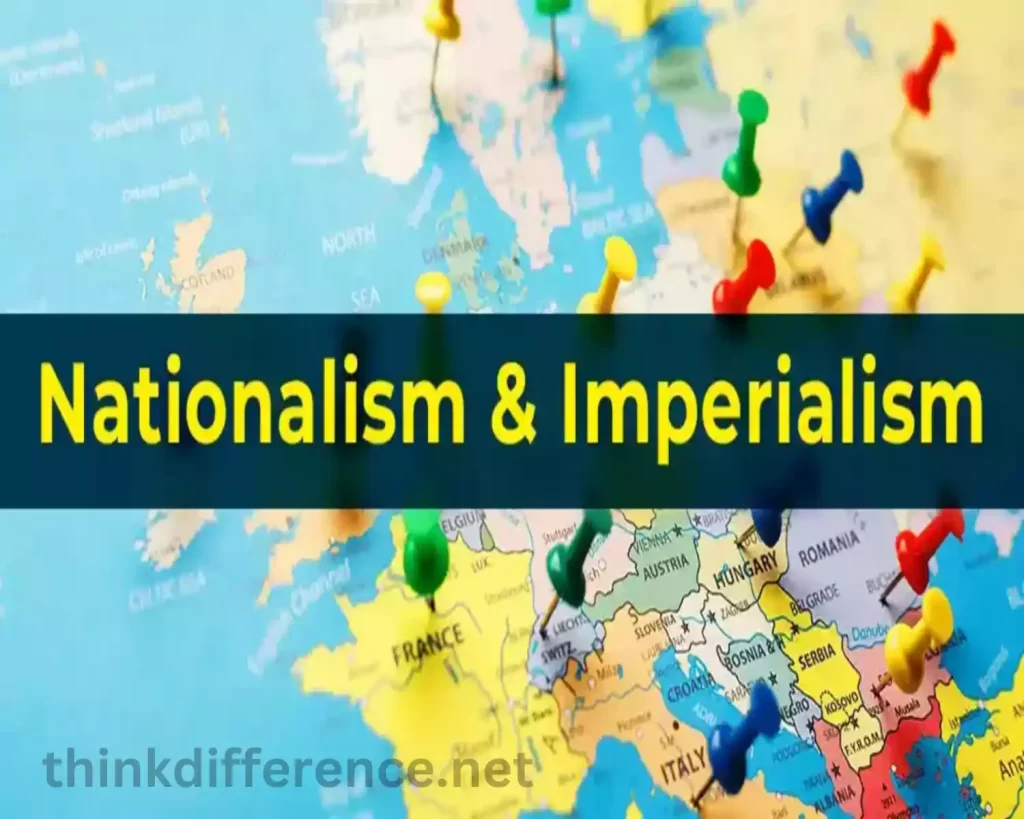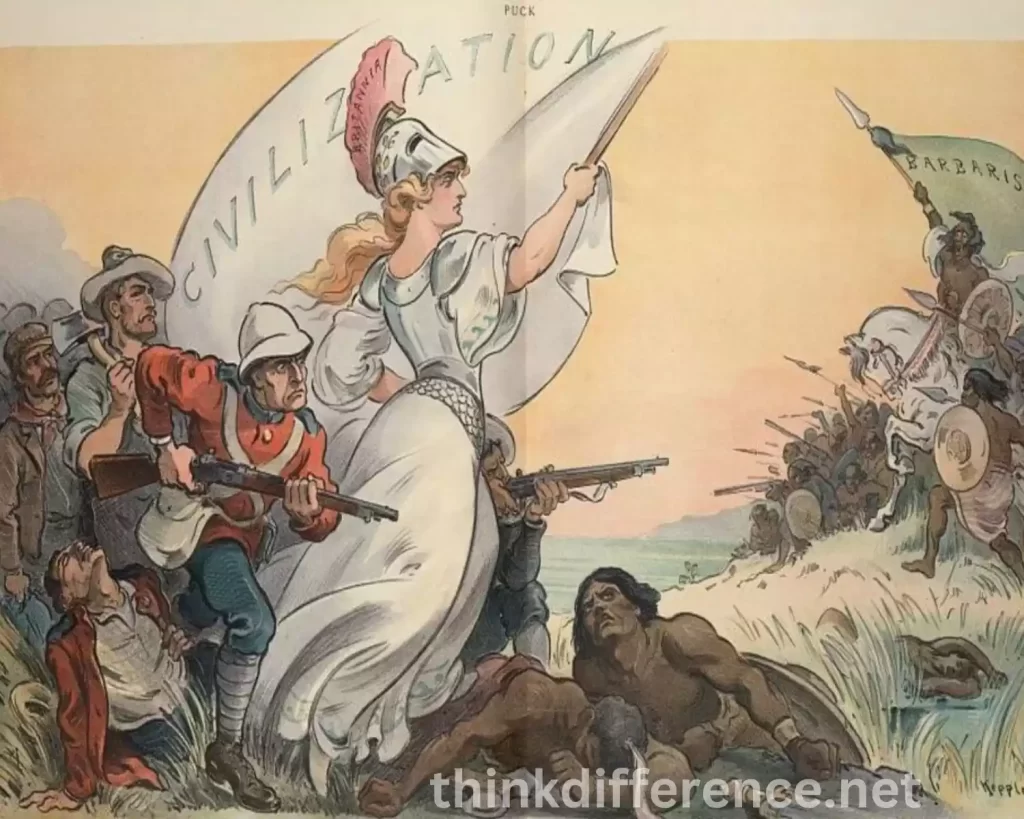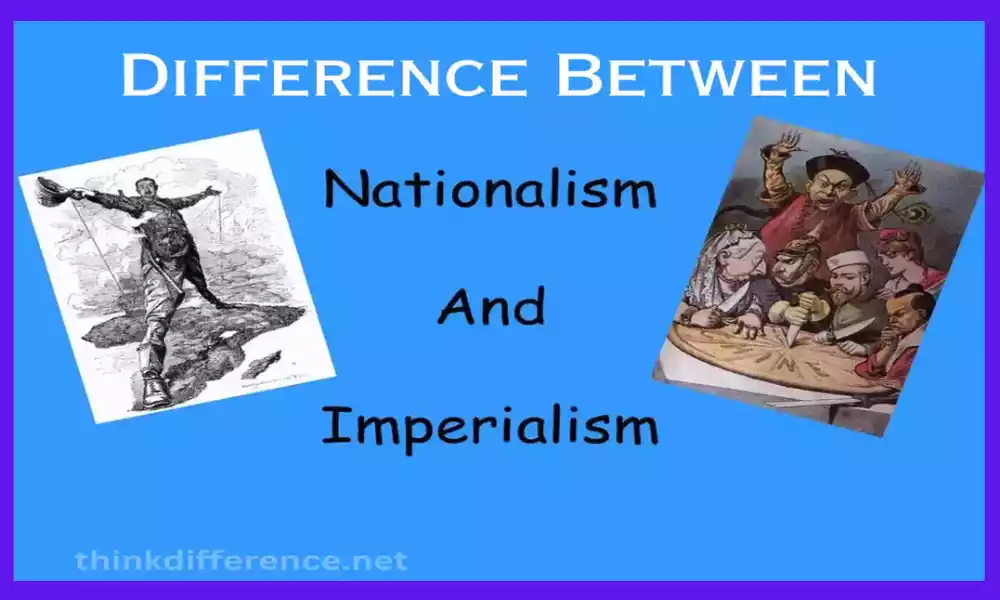Nationalism as well as Imperialism are two key concepts that have been influential in shaping the world in various ways. Nationalists are proud of your nation and want it to be self-sufficient and solid.
It’s a collective loyalty to your country in which people feel connected as they have the same language, culture, or even history. The concept of nationalism has helped many countries escape being controlled by the outside world and united people to work to improve the lives of their country

Imperialism, on the contrary side, occurs as the process by which a nation seeks to increase its influence and control over other nations and populations. It’s like powerful countries taking on the challenge of collecting areas around the globe and often acquiring control over the resources they possess or increasing their power.
It happened a lot during the last few decades, as large countries seized parts of Africa, Asia, and the Americas. Although it made these large countries richer and more powerful, it also hurt the people and the lands that were seized.
What is Nationalism?
Nationalists have a sense of pride, loyalty, and love that people feel toward their nation. It’s about a belief that your nation is unique, with its tradition, culture, language, and heritage is significant and worthy of celebration. Nationalists typically feel a strong feeling of belonging to their country and often believe that it is better than others.

This can motivate people to collaborate for the success of their nation and freedom, and it can unite them, particularly during difficult times. But, it can be a negative thing, since it could lead to people thinking less of other nations or different cultures.
It has played a significant role in the history of mankind and led to the creation of new nations and conflicts when nationalist views are at odds. Nationalism, in essence, is a strong national spirit that encourages pride and unity but it should be balanced by respect for other nations.
What is Imperialism?

Imperialism is the process by which the country increases its influence and power over other nations, usually by using force or dominance. It’s similar to a powerful nation seeking to build an empire by governing weaker nations. This usually involves the taking of their land and resources as well as influencing their government and culture.
In the past, European countries like Britain and France were famous for their activities as imperialists which included the establishment of colonies in various regions of Africa, Asia, and the Americas. While the imperial system led to the growth and prosperity of the empires of those countries, it also caused negative consequences for the regions that were conquered.
In these regions, people might lose their autonomy in terms of natural resources, as well as their cultural identity. Imperialism has had a significant impact on the world’s history and politics and has had long-lasting effects that remain visible in relations between nations.
Key Difference Between Nationalism and Imperialism
Here’s a comparison chart that highlights the key differences between Nationalism and Imperialism:
| Aspect | Nationalism | Imperialism |
|---|---|---|
| Definition | Strong pride, loyalty, and devotion to one’s nation and culture. | The practice of a powerful country extending its control over other nations or territories. |
| Focus | Emphasizes love for one’s own country and cultural identity. | Focuses on expanding power, often through colonization and control of other lands. |
| Key Motivations | Patriotism, self-determination, and preserving cultural identity. | Economic gain, resource extraction, and political dominance. |
| Historical Context | Emerged during the 18th and 19th centuries, often associated with nation-building. | Dates back to ancient civilizations but took on a new form during European colonial expansion in the 15th to 20th centuries. |
| Influence on Borders | Can lead to the formation of new nations or changes in national boundaries. | Often resulted in the creation of colonies and redrawing of borders. |
| Role in Independence | Often a driving force behind independence movements. | Frequently met with resistance and led to decolonization efforts. |
| Social Implications | Can foster a sense of unity and pride, but may also lead to exclusionary attitudes. | Can lead to cultural exchanges but may result in the imposition of dominant cultures. |
| Political Implications | Promotes political stability and collective action but can also lead to conflicts when extreme. | Historically led to political domination and control, reshaping global politics. |
| Contemporary Relevance | Remains a powerful force in contemporary politics and identity. | Continues to influence global power dynamics and international relations. |
| Ethical Considerations | Raises questions about the balance between national pride and cooperation with other nations. | Raises ethical questions about the impact on colonized regions and cultures. |
Historical Evolution
Nationalism:
- The earliest origins (18th Century): The idea of nationalism was first conceived at the end of the 18th Century, specifically during the American and French revolutions. These revolutions were driven by the desire to have a self-governing system as well as the conviction in the sovereignty of the nation.
- The 19th Century’s Growth: In the 19th century, we witnessed the rise of nationalism which was often linked to romanticism. It stressed a shared national identity based on cultural, language, and shared history. The 19th century saw a unification between Italy and Germany in the wake of nationalist beliefs.
- World Wars Era: In World War I and II nationalism was at its highest in a tense form. Nationalism was fueled by an intense sense of patriotic pride as well as duty. But, extreme nationalism and nationalism, particularly during Nazi Germany, contributed to the calamities that erupted during World War II.
- Post-World War II: Following World War II nationalists were a major factor in the process of decolonization across Africa and Asia as nations sought freedom of European powers.
- Modern Nationalism: Since the last few years nationalist sentiment has come back in a variety of forms. Sometimes, it’s in response to globalization and perceptions of threats to nationalism or economic issues.
Imperialism:
- The early forms (15th-18th Century): Imperialism has an ancient history, but it was given an entirely new shape with European exploration of the world and colonization that began at the end of 15th century. The conquests of the Americas as well as slavery were the first instances.
- HDI Imperialism (19th century): The late 19th century was the era of New Imperialism, characterized by European powers’ frenzied pursuit of Africa as well as Asia. The period was characterized by industrialization, economic reasons as well as an assumption of European superiority.
- World Wars Impact: The World Wars saw the decline of European empires as World War I leading to the fall of the Ottoman and Austro-Hungarian empires as well as the Russian as well as German empires. World War II further weakened European control over the colonies.
- The process of decolonization (Mid-20th Century): After World War II, a wave of decolonization was sweeping throughout Asia and Africa as the imperialized countries became independent, motivated by nationalist movements.
- Contemporary Imperialism: In the modern world, imperialism can take various forms, usually through economic influence or cultural dominance. It can also be a result of indirect political control, rather than direct rule by colonial rulers.
What is the political significance of Nationalism and Imperialism?
The significance of nationalists and imperialism is significant because the concepts played crucial parts in shaping the course of world politics and nations. Nationalism can be the catalyst for political movements that seek independence and self-determination.
It creates a sense of belonging and a sense of unity within the nation, which can lead to the creation of new states as well as the changing of boundaries. However, extreme nationalism could cause the exclusion of ideologies, xenophobia, and even wars between nations, when different nationalist beliefs are at odds.
Imperialism, on the contrary, on the other hand, has historically had significant political consequences due to the control and dominance of nations that were less powerful by imperial powerhouses. The control of imperial powers reshaped world political landscapes when powerful nations increased their influence and territories.
The consequences of empire include colonial rule, extraction of resources, as well as the infliction of foreign governments, usually leading to anti-imperialist and resistance movements. Decolonization attempts are aimed at reversing the negative political consequences of imperialism and giving nations more sovereignty and autonomy in their politics.3
In the end, both imperialism and nationalism are powerful political forces that have shaped the globe’s political map and have influenced the creation and development of new nations as well as the complexities that govern international relations as well as the fight for self-government and self-determination. Understanding their political importance is vital to comprehending both the political landscape of the past and present.
Relationship Between Nationalism and Imperialism
The relationship between imperialism and nationalism is intricate and complicated. On the one the other hand, nationalists have often been a catalyst for imperialist goals. Nationalism has been a driving force behind many countries.
Belief in national pride and the perception of superiority have tried to expand their territory and influence while justifying their actions as a means of spreading their values and culture. This was evident, especially in the European colonial period. the imperial powers, driven by pride in their nation and economic considerations created vast colonies.
On the other hand, nationalism has been a crucial factor in restraining and destroying imperialism. In areas of colonization, nationalism emerged as a strong reaction against foreign control. These movements, motivated by a need for self-determination and the preservation of the cultural identity of a region, frequently resulted in struggles for independence and ultimately the end of the rule of imperialism, particularly after World War II.
The nationalism aspect has altered the global map and led to the creation of new nations as well as the demise of several empires of colonialism.
Why is it Important to understand Nationalism and Imperialism
Understanding the concept of imperialism and nationalism is vital for many reasons:
- The Historical Background: This concept has played a major role in shaping the course of world history such as colonialism, the decline and rise of empires, and also the development of modern nation-states. Understanding their historical contexts helps us understand the recent events and their effects on the current.
- Current Politics: Nationalists remain an important factor in modern politics that influences policies, international relations, as well as conflicts. The legacy of the empire continues to influence geopolitical developments. Understanding these concepts can help us evaluate the present and international relationships.
- Conflict Resolution: The nationalist feelings and the imperialist legacy have been the main causes of conflict. Recognizing these dynamics is crucial in peace-building and conflict-resolution efforts since it allows us to tackle the root of the issue.
- Cultural awareness: Nationalists often involved the celebration of identity and heritage. Being aware of it can foster awareness of and appreciation for culture. The influence of imperialism on the world’s cultures is a reminder of the importance of accepting different perspectives.
- Ethics Considerations: Both nationalism and imperialism have ethical aspects. They have produced both positive and negative results. Understanding them can lead to an informed discussion about ethics and a better decision-making process.
- Global Connectivity: The world of today is increasingly interconnected where nations are interconnected both politically and economically culturally, understanding these concepts is crucial to world citizenship and full participation in the global community.
Summary
Nationalism occurs when people feel a sense of loyalty and pride in their country. It’s like belonging to one big family, in which everyone has a shared heritage, culture, or language, and works to ensure the well-being of the nation. The feeling of belonging to a nation can help people feel more united and proud of the country’s culture.
Imperialism on the other hand is the time when a powerful country gains control over less developed nations. It’s similar to a powerful player who is seeking to conquer as much territory as it is feasible. This usually involves the use of power or force to acquire resources and influence. Although it may make a powerful nation more powerful, it typically harms the nations that are under their control.


